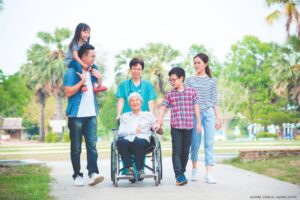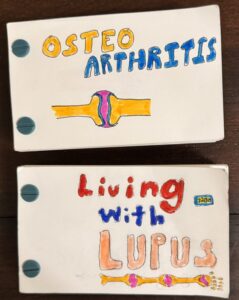 “I wish my family knew or understood what I am going through. My son keeps asking me why I get tired so easily sometimes and go to bed when he is all ready to play. I feel guilty and sad simultaneously.” My patient with systemic lupus erythematosus was sharing her vulnerable thoughts with me during her visit. Fatigue and arthritis are her major disease burdens.
“I wish my family knew or understood what I am going through. My son keeps asking me why I get tired so easily sometimes and go to bed when he is all ready to play. I feel guilty and sad simultaneously.” My patient with systemic lupus erythematosus was sharing her vulnerable thoughts with me during her visit. Fatigue and arthritis are her major disease burdens.
Another patient of mine asked, “Doctor, how can I make my daughter understand that I cannot be out in the sun for too long?”
I am a practicing rheumatologist in Dallas. Most clinicians can easily recall such moments from our clinical practice.
I’ve also heard such comments at home. My son, who is a creative and empathetic tween, sees his grandmother suffering from osteoarthritis of her knees. He often approaches me with the question, “Amma [Mom], how can we help Paati [Grandmother] feel better? Should I take her for a walk? Is there any pill that will make her pain go away forever?”
Perception
In the above examples, the key observation is the perception of illness. The way in which the patient or the family member perceives their disease is an important variable in the chronic disease experience. Perception is heavily influenced by the disease itself, the environment and day-to-day interactions. The perception is then shaped in the patient’s mind through cognitive and emotional representations. Cognitive representation is the sum of symptoms, cause, timeline of the illness and the degree of control (i.e., personal and treatment) a patient can have over their illness, which is then shaped into an identity.1
Even as experienced clinicians, we find it hard to align with a patient’s idea of what the illness means to them and how it affects their quality of life. As a rheumatologist, I may set goals to get inflammation under control, prevent organ damage and aim for remission, but a patient may be more concerned about fatigue or poor sleep hygiene. They may be more inclined to temporarily manage their flare-ups with glucocorticoids or painkillers, and the lack of options to treat their fatigue may frustrate them the most. In such instances, the care and support of a family member could mean a world of difference to them.
Family Support

The flipbooks.
These scenarios prompted me to delve into patient education, but with a focus on the family as the target audience instead of the patient. I began my quest for knowledge by seeking patient education resources.



